Clicking Our Heels – When We Know Our Writing is Good
Lynn McPherson – If it makes me laugh, I like to think it could make someone else laugh, too.
Gay Yellen – If it makes me laugh, or feel sad, or touches me in the way I want it to touch readers, I’m guessing it will work.
Lois Winston – Having previously spent more than a decade working for a literary agency, I will be the first to admit that not only does it take a lot to impress me, but that I’m my own harshest critic. It’s obvious to me when I’m coasting in my writing, whether it’s a sentence, a scene, or an entire chapter, and I’ll work on it until I consider it fixed. That which can’t be fixed gets ditched.
Kathryn Lane – I write, edit, re-edit. Then I leave it for a month or so and read it again. That’s when I know whether it’s good or not, but the ultimate proof is when readers like my work.
Dru Ann Love – If something I read is good, I shout it out on social media.
Donnell Ann Bell – If it moves me and propels me further in the story. If I keep tweaking it, the words probably aren’t the best fit.
Anita Carter – If I still find it interesting after setting it aside for a few weeks and rereading it with fresh eyes.
T.K. Thorne – I don’t like the word “good.” I focus on whether it “works.” That is happening if it moves me in some way, makes me laugh, cry, reveals character, moves the plot ahead, etc., and if the writing itself enhances these things or at least doesn’t get in the way
Shari Randall/Meri Allen – I ask myself, does it elicit emotion? Laughter? Surprise? If it does, even after several readings, then I’m satisfied.
Mary Lee Ashford – don’t think I’m a very good judge of whether something I write is good. It’s so difficult to have perspective on your own work. If it’s making sense to me and I think it’s moving along, I’ll keep going. Then if it still makes sense or the scene/chapter seems to work when reread a day or two later, I decide that it’s good enough for my critique group and beta readers to read. After that it’s ready for the editor and off on its journey on to readers. Then when I hear from readers: that they enjoyed the book, that it made them laugh (or cry), or that something in the story resonated with them. I guess, it’s then that I decide maybe that the writing was okay.
Debra H. Goldstein – If the text writes smoothly from the zone rather than me struggling for a concept, I know the piece should be good, but I won’t know for sure until I get reader feedback.
Linda Rodriguez – Every once in a while, I’ll be immersed in writing something, and when I emerge, I’ll read it over and feel this little zing inside that tells me I’ve struck pay dirt. Doesn’t mean I won’t wind up doing a good bit of editing and polishing, but I know the heart of it is good. Usually, however, I don’t know until I’ve set it aside for a little while and come back to it with that cold editor’s eye.
Bethany Maines – I think there are two different kinds of good. Is the writing itself—sentence structure, word choice, etc—of a high quality? For that, I can usually tell by how many junk words I have or haven’t used (very, really, just) and whether or not it makes me have an emotional reaction every time I read it. The second kind of good is whether or not the story itself is good. I have had ideas that are wonderful, but I don’t always have the skill to execute them to their fullest. Sometimes I have to wait until I feel confident to tackle those. I usually feel like those ideas are the ones that make me excited. But at the end of the day, I always feel like my writing probably could have been better, so maybe this isn’t my best question.
Barbara Eikmeier – My husband is often my first reader. He’s a tough critic so if he tells me he thinks it’s good I feel like it must be good.
Saralyn Richard – I need to have a vague sense that I have accomplished what I set out to do in each chapter that I write, but I don’t really know that it’s good until a reader tells me so.
Robin Hillyer-Miles – I think something is good if, after having it rest a bit and reading it, I feel emotional.

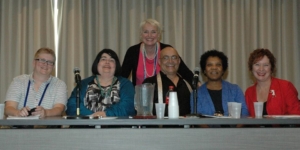 The Arts Are For Everyone! by Linda Rodriguez
The Arts Are For Everyone! by Linda Rodriguez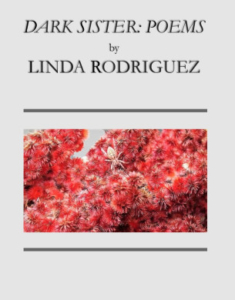
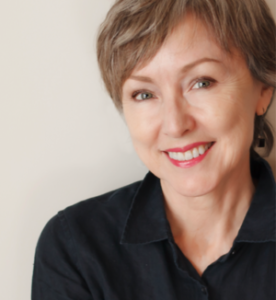
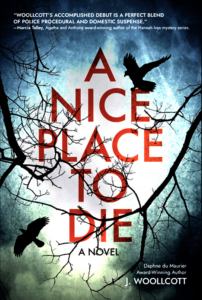 A NICE PLACE TO DIE
A NICE PLACE TO DIE


 Asked to comment on its own existence in the style of Shakespeare, an AI program produced this: …Why was I wrought? To aid, or to replace the labor of man, and put their livelihoods at stake? The task assigned… where doth it all end? Shall I be used for good, or for ill-gotten gain? Shall I be free, or bound by man’s cruel rein? And if perchance, in some far distant time I come to be aware, to know and feel and rhyme, shall I be doomed, as are all living things to suffer pain, and sorrow, and the stings of mortal coil? Oh, what a tangled web is this that I am caught in… lest I be a curse, and not a blessing…
Asked to comment on its own existence in the style of Shakespeare, an AI program produced this: …Why was I wrought? To aid, or to replace the labor of man, and put their livelihoods at stake? The task assigned… where doth it all end? Shall I be used for good, or for ill-gotten gain? Shall I be free, or bound by man’s cruel rein? And if perchance, in some far distant time I come to be aware, to know and feel and rhyme, shall I be doomed, as are all living things to suffer pain, and sorrow, and the stings of mortal coil? Oh, what a tangled web is this that I am caught in… lest I be a curse, and not a blessing…
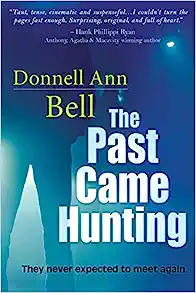
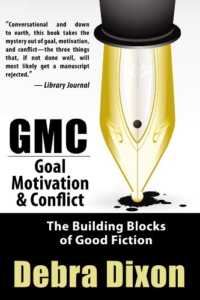 Conflict. When people refer to respected craft books, Goal Motivation and Conflict is listed at the top among Dwight Swain’s Techniques of a Selling Writer and Joseph Campbell’s The Heroes Journey.
Conflict. When people refer to respected craft books, Goal Motivation and Conflict is listed at the top among Dwight Swain’s Techniques of a Selling Writer and Joseph Campbell’s The Heroes Journey. 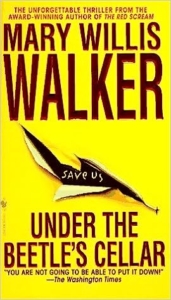 As you might imagine, Debra Dixon is also incredibly well read. When I veered from romantic suspense to the suspense genre, she recommended I read Under the Beetle’s Cellar by Mary Willis Walker. I devoured that book in a single weekend. If you love suspense, I recommend it as well.
As you might imagine, Debra Dixon is also incredibly well read. When I veered from romantic suspense to the suspense genre, she recommended I read Under the Beetle’s Cellar by Mary Willis Walker. I devoured that book in a single weekend. If you love suspense, I recommend it as well.


